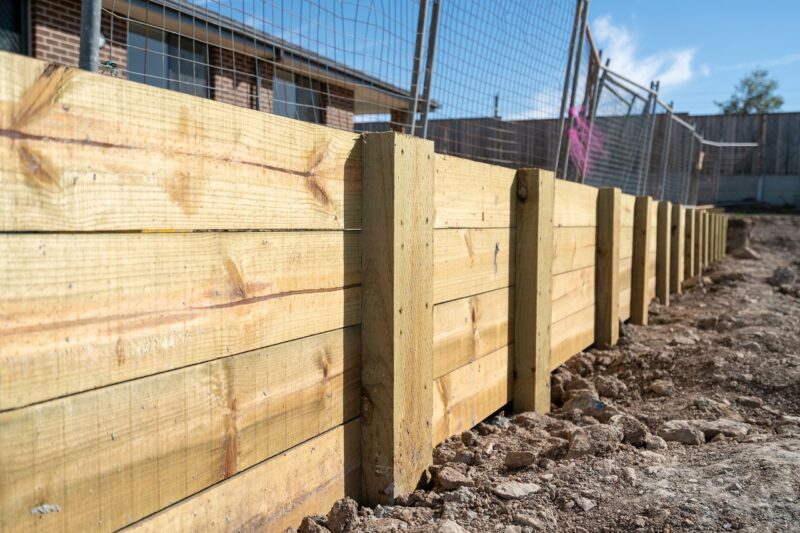Published: 24/09/24 By: Mike Bekin
Retaining walls can transform an outdoor space. A longstanding staple in the world of landscaping, they can level sloped areas, create zoning in larger gardens and even prevent erosion in areas of risk, keeping the land in good shape for decades to come. If you are installing retaining walls, you have our seal of approval.
But the material you choose can drastically affect the performance, suitability and durability of your walls. That is why we have put together this no-nonsense guide, comparing your options for sloping gardens to make the decision easy.
Timber Retaining Walls
Timber is the preferred choice for most landscapers when looking at retaining walls for sloped land. It offers a huge advantage when it comes to appearance, blending naturally with the existing landscape for a seamless, consistent aesthetic.
Being a renewable, carbon-sequestering resource, sustainably sourced timber also brings plenty of green points to the project. We source all our timber for retaining walls from FSC and PEFC-certified forests, ensuring responsible harvesting and sustainable growing practices.
Other advantages of timber for retaining walls include:
- High durability
- Many different timber species from which to choose from such as Oak, Ekki, Opepe
- Versatile in aesthetics, durability and workability
To keep your wall looking its best, your timber may require a little maintenance over the years, but nothing too extensive. Highly durable species will also weather to a beautiful silver without maintenance, making for a delightfully rustic look which requires little to no upkeep.
Concrete Blocks
Another common material choice is concrete blocks. These are durable, sturdy and fairly easy to install as a DIY project. They bring a contemporary aesthetic to gardens which are more industrially-themed than nature-inspired, and they can be used to create interesting modular designs for a creative space.
The thing to be aware of when using concrete blocks is that you need a good drainage system, directing water away from the concrete to stop any water damage. It is also a less eco-friendly option, being non-renewable and carrying a higher carbon footprint than timber. And of course, since they don’t span long lengths such as timber, there’s limited weight they can hold just with mortar.
Brick Walls
Brick walls are a little less harsh in appearance than concrete blocks and carry some of the rustic charm of timber – although again unless they’re reinforced, they can’t hold as much weight as timber. They are also smaller than concrete blocks, making them easier to manoeuvre and make curves. They are a durable, timeless choice which can create a good divider between sections of a sloped garden.
However, it pays to be careful with your foundations when laying brick walls. This is a pretty tedious and meticulous process, often requiring professional involvement for a sturdy wall. It is also very tricky to replace damaged bricks, meaning that although the overall wall is durable, it might not look quite so fresh after a few years of wear and tear.
Source Timber Retaining Walls at EcoChoice
At EcoChoice, we supply sustainable timber for retaining walls to garden projects around the UK. With a wide range of beautiful, durable species, we have plenty of options available from which to pick and we can advise you on the right choice for your needs.
To learn more or start an order, get in touch with our friendly team today.
Tags: Retaining walls
Categories: Insights
